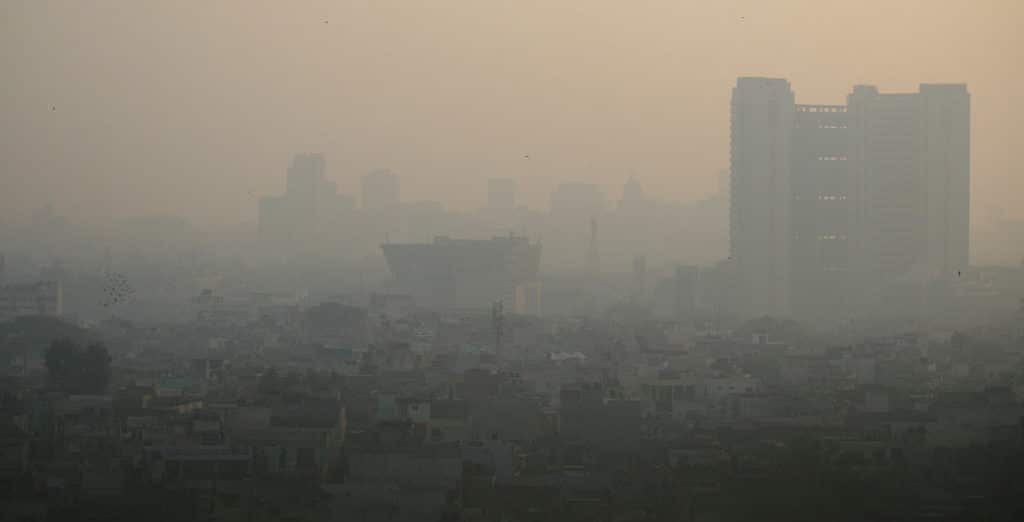Delhi’s noxious air will hurt more than people’s lungs, according to the Associated Chambers of Commerce and Industry of India (Assocham). It is likely to drive away expatriates, severely impacting inflow of investments and hitting sectors like tourism, hospitality, outdoor recreation and others, Assocham Secretary General DS Rawat said on Nov. 10.
“The increasing air pollution can take a toll on the urban economy by cutting short life span of people, thereby increasing healthcare costs to the government, driving away top executives and talented people to other cities with better air quality, thereby negatively affecting Delhi’s ability to attract highly-skilled expatriates, severely impacting inflow of investments and hitting sectors like tourism, hospitality, outdoor recreation and others,” said Rawat.
Delhi’s air pollution levels were recently labelled as a “medical emergency” by the government as the air pollution went into “severe” category. On Nov. 10, the levels of PM2.5 and PM10 (particles with diameter less than 2.5 and 10mm) were “severe”, according to data from the Central Pollution Control Board (CPCB). The average Air Quality Index (AQI) of Delhi was recorded at 480, close to “severe-plus”, while the average PM2.5 (particles with diameter less than 2.5) of 24 active monitoring stations was 479 units by 12 pm.
Schools were shut down earlier this week and the Delhi government has been mulling implementation of the odd-even strategy for allowing cars only with certain registration numbers on the roads each day. First implemented in January 2016, the scheme allowed cars with number plates ending on odd numbers to ply on the roads alternatively with cars with number plates ending with even numbers.
“Delhi is facing an emergency situation but there is hardly any intention or commitment seen to address the problem,” said Rawat, according to Hindu.
Assocham urged the Center and governments of Delhi, Haryana, Punjab and Uttar Pradesh to come up with a strategy to tackle air pollution, such as employing mist cannons, and creating a special force to check construction activities, vehicular pollution and crop stubble burning.
“Different ministries, departments as well as universities, research institutions and organizations alike must come together and also engage top-tier professionals to chart out a systematic, clear timetable and roadmap for tackling air pollution and curbing its causes thereby improving Delhi’s air quality,” said the apex industry body.
“Promoting use of more efficient and less polluting energy sources, restricting growing number of vehicles and stringent enforcement of pollution laws will help in smooth transition to a more environment-friendly economy in the long-term,” Rawat added.
The Indian Meteorological Department (IMD) on Nov. 10 said air quality in the capital should improve from Saturday: “We expect wind speed of 19-20 kilometers per hour from Saturday afternoon. The temperature is not expected to be too low either and we expect a marked improvement in air quality starting Saturday.”
Former Delhi Chief Minister Sheila Dikshit slammed the Arvind Kejriwal-led government for the odd-even scheme: “I don’t think there is any planning at all in this past one year. Even the last time when they implemented the odd-even rule, it was not effective at all.”
Kejriwal had earlier blamed burning of paddy in neighboring states for the degrading air pollution, which led to children and adults falling sick and being recommended to spend most of the time indoors.
